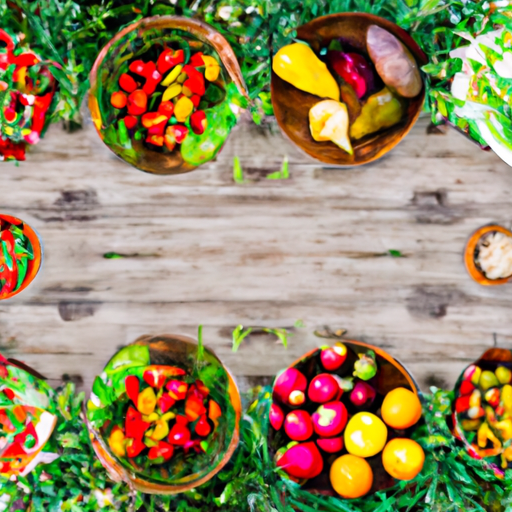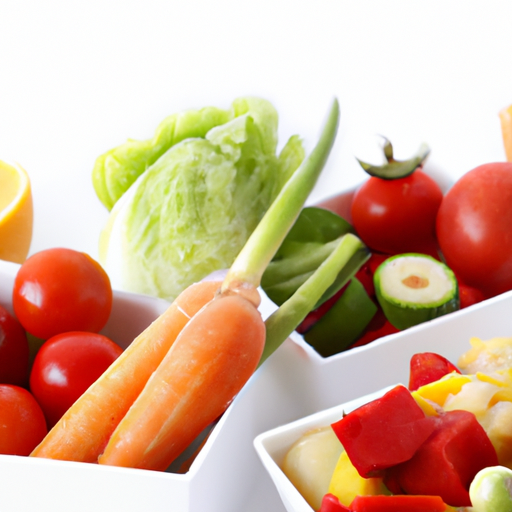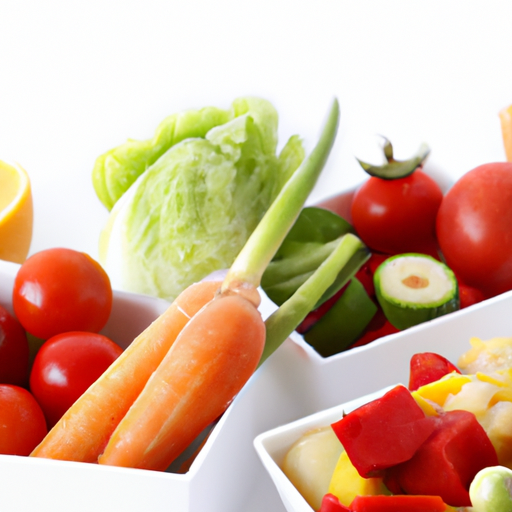Have you ever wondered what a vegetarian diet actually entails? Well, in simple terms, it’s a diet that excludes meat and fish, but includes plant-based foods like fruits, vegetables, grains, legumes, and nuts. So basically, if you follow a vegetarian diet, you’re choosing not to eat any form of animal flesh.
Now, let’s dive a bit deeper into the details. Within the vegetarian diet, there are different variations, such as lacto-vegetarian, ovo-vegetarian, and vegan. Lacto-vegetarians include dairy products in their diet, while ovo-vegetarians consume eggs, and vegans avoid all animal products altogether. So, as you can see, the level of animal product restriction can vary depending on the type of vegetarian diet one follows.
There are numerous reasons why people choose to follow a vegetarian diet. Some do it for ethical reasons, as they believe in minimizing harm to animals and reducing their environmental footprint. Others opt for a vegetarian diet for health reasons, as it has been associated with various health benefits, such as lower risk of heart disease, type 2 diabetes, and certain types of cancers. In fact, many athletes also follow a vegetarian diet to fuel their performance and aid in muscle recovery.
In our upcoming article, we’ll provide more in-depth information about the different types of vegetarian diets, the potential health benefits and challenges, as well as tips on how to ensure you’re getting all the necessary nutrients on a vegetarian diet. So, stay tuned to learn more about how a vegetarian diet can fit into your lifestyle and potentially improve your overall well-being! A vegetarian diet is a dietary approach that emphasizes the consumption of plant-based foods while avoiding meat and animal products. It is a diet that is followed by individuals who choose not to consume animal flesh and are seeking a healthier lifestyle. Vegetarianism has gained popularity in recent years due to its various health benefits and its positive impact on the environment. In this article, we will explore the definition of a vegetarian diet, its benefits, key principles, different types, misconceptions, tips for transitioning, meal ideas and recipes, considerations for vegetarian athletes, and its relation to environmental sustainability. So, let’s dive in and discover the world of vegetarianism!
Understanding the Concept of Vegetarianism
Vegetarianism revolves around the idea of excluding meat and animal products from your diet. This dietary choice is often driven by ethical, environmental, or health concerns. By abstaining from consuming animal flesh, vegetarians aim to reduce animal cruelty, promote sustainability, and improve their overall well-being.
Categories of Vegetarian Diets
There are various categories of vegetarian diets, each with its own level of food restrictions. Here are the main types of vegetarian diets:
Lacto-Ovo Vegetarian
The most common type of vegetarian diet is the lacto-ovo vegetarian diet. This diet excludes meat, fish, and poultry but includes dairy products and eggs. Lacto-ovo vegetarians derive their protein and other essential nutrients from plant-based sources, dairy, and eggs.
Lacto Vegetarian
Lacto vegetarianism excludes meat, fish, poultry, and eggs. However, unlike lacto-ovo vegetarians, lacto vegetarians include dairy products in their diet. This means that they consume milk, cheese, yogurt, and other dairy-based products as sources of protein and calcium.
Ovo Vegetarian
Ovo vegetarianism excludes meat, fish, poultry, and dairy products but allows for the consumption of eggs. Ovo vegetarians rely on plant-based foods and eggs to fulfill their nutritional needs.
Vegan
A vegan diet excludes all animal products, including meat, fish, poultry, dairy products, eggs, and even honey. Vegans primarily rely on plant-based sources for their nutrition and avoid anything derived from animals.
Raw Vegan
Raw veganism takes veganism a step further by excluding any cooked or processed foods. A raw vegan diet consists entirely of plant-based foods in their raw, uncooked form. This diet is often associated with the belief that cooking destroys essential nutrients in foods.
Fruitarian
Fruitarianism is a diet that primarily consists of fruits, nuts, seeds, and other plant-based foods that can be harvested without harming the plant. Some fruitarians also include vegetables, grains, and legumes in their diet. Fruitarianism is often considered an extreme form of vegetarianism due to its limited variety of food choices.

Benefits of Following a Vegetarian Diet
Improved Heart Health
One of the most touted benefits of a vegetarian diet is its positive impact on heart health. Studies have shown that vegetarians have a lower risk of developing cardiovascular diseases compared to non-vegetarians. This can be attributed to the lower intake of saturated fats and cholesterol found in meat and animal products.
Weight Management
Vegetarian diets are often associated with weight management and weight loss. Plant-based foods tend to be lower in calories and saturated fats compared to animal-based foods. By choosing a vegetarian diet, you are more likely to consume a higher amount of fiber, which promotes satiety and helps control weight.
Reduced Risk of Chronic Diseases
Following a vegetarian diet has been linked to a reduced risk of various chronic diseases, including type 2 diabetes, certain types of cancer, and hypertension. The high intake of fruits, vegetables, whole grains, and legumes in a vegetarian diet provides essential nutrients and antioxidants that can help protect against these diseases.
Key Principles of a Vegetarian Diet
Emphasis on Plant-Based Foods
The key principle of a vegetarian diet is to prioritize the consumption of plant-based foods. These include fruits, vegetables, whole grains, legumes, nuts, and seeds. Plant-based foods are rich in essential nutrients, fiber, and antioxidants, which are all important for maintaining good health.
Avoidance of Meat and Animal Products
Another key principle of a vegetarian diet is the exclusion of meat and animal products. This includes red meat, poultry, fish, and animal-derived ingredients such as gelatin, lard, and rennet. By avoiding these foods, vegetarians reduce their intake of saturated fats, cholesterol, and excessive sodium.
Sources of Essential Nutrients
While a vegetarian diet can provide all necessary nutrients for a healthy lifestyle, it is important to pay attention to essential nutrients that might be lacking due to the absence of meat and animal products. Vegetarians need to ensure they obtain adequate amounts of protein, iron, vitamin B12, calcium, and omega-3 fatty acids. These can be found in plant-based sources such as legumes, tofu, tempeh, fortified plant milks, leafy greens, nuts, and seeds.

Types of Vegetarian Diets
As discussed earlier, there are several types of vegetarian diets, each with its own set of restrictions and allowances. Understanding the differences between these diets is important for individuals considering or following a vegetarian lifestyle. Here is a closer look at each type:
Lacto-Ovo Vegetarian
Lacto-ovo vegetarians do not consume meat, fish, or poultry, but they include dairy products and eggs in their diet. This allows for a wider range of food choices and simplifies the process of meeting protein and calcium requirements.
Lacto Vegetarian
Lacto vegetarians avoid meat, fish, poultry, and eggs but consume dairy products. This diet removes eggs from the lacto-ovo vegetarian diet, making it suitable for individuals who are lactose intolerant or have allergies to eggs.
Ovo Vegetarian
Ovo vegetarians exclude meat, fish, poultry, and dairy products, but they do consume eggs. This variation of the vegetarian diet allows for animal-based protein and other nutrients found in eggs.
Vegan
Vegans strictly avoid all animal products, including meat, fish, poultry, dairy, eggs, and honey. They rely solely on plant-based sources for their nutrition. While this diet requires careful attention to nutritional needs, it can be a highly ethical choice for those concerned with animal welfare.
Raw Vegan
Raw veganism takes veganism to the next level by excluding cooked or processed foods. The raw vegan diet consists primarily of fruits, vegetables, nuts, seeds, and other plant-based foods in their natural, uncooked state. This diet promotes the consumption of whole, nutrient-rich foods and can be challenging to follow due to the limited variety of options.
Fruitarian
The fruitarian diet revolves around the consumption of fruits, nuts, seeds, and other plant-based foods that can be gathered without harming the plant. Some fruitarians also include vegetables, grains, and legumes in their diet. This diet is considered extremely restrictive and should be followed with caution to ensure all nutritional needs are met.
